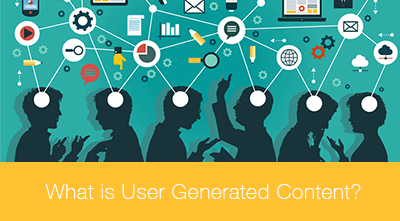What is User Generated Content?
Any type of content that is created by the end-users of the product/service is called User Generated Content (UGC).

User generated content, or UGC and sometimes called user created content, or UCC, is a term applied to any content that is created by the users of an app or web service. This can range from text uploaded to a website to photos uploaded to a social network, or even video content. UGC is one of the most important things for app developers to handle correctly, as well.
Why Does User Generated Content Matter?
In almost every app in existence, users generate some type of content. In games, it might be scores and performance metrics that are then used to help rank them in leaderboards. In other apps, it could be text messages – Snapchat and Facebook Messenger are just two examples of apps where text can be exchanged between users, and must be maintained and controlled in accordance with the app’s terms of use and privacy policy. Instagram is a great example of an app where user generated content takes the form of photographs, while YouTube is an example of user generated video content.
The Rise of UGC
Media was once built on the “one to many” concept. For instance, a single newspaper might serve thousands, or tens of thousands of individual readers. Today, things have started to change with the rise of UGC. Many media companies, and even app owners, have started to allow the publishing of user generated content as media, particularly in the realm of news. A perfect example of this is the trend of live tweeting events. These can range from fashion shows to television series to natural disasters to terrorist attacks. There are proponents and detractors on both sides, but the trend of UGC used as media content is not going away. Some companies have even turned to using UGC as advertising (Coca-Cola’s Share a Coke with a Friend campaign is an example of this).
The Controversy Surrounding UGC
Nearly every web or mobile app in existence will have to deal with UGC, and there’s a great deal of controversy out there about how that data is handled, and used. In the vast majority of cases, UGC is created by unpaid contributors – users, fans or followers. For instance, the tone and quality of UGC has recently come to be very important. The increasing calls by both governments and watchdog groups for Facebook to manage and actively delete hate speech is just one example. Other potential issues include the use of:
- Profanity
- Sexually explicit content
- Attacks on other users
- Harassment (both sexual and non-sexual)
- Terroristic threats
- Racial slurs
App developers must determine how they will handle UGC, and particularly content that falls into these and other controversial areas. Some organizations take things so far as to police all UGC and delete offensive material, sometimes banning or blocking offensive users. Other organizations do little to modify UGC that can be found or accessed in their system, preferring to let their communities police themselves.